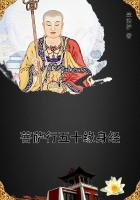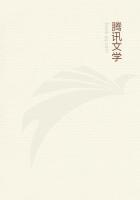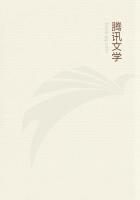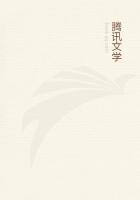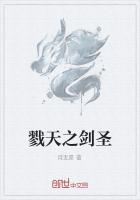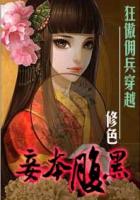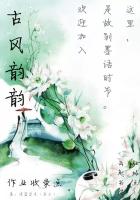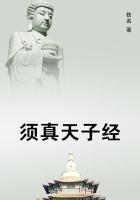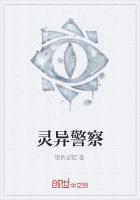There should be a law that no ordinary newspaper should be allowed to write about art. The harm they do by their foolish and random writing it would be impossible to overestimate - not to the artist but to the public, blinding them to all, but harming the artist not at all. Without them we would judge a man simply by his work; but at present the newspapers are trying hard to induce the public to judge a sculptor, for instance, never by his statues but by the way he treats his wife; a painter by the amount of his income and a poet by the colour of his neck-tie. I said there should be a law, but there is really no necessity for a new law: nothing could be easier than to bring the ordinary critic under the head of the criminal classes. But let us leave such an inartistic subject and return to beautiful and comely things, remembering that the art which would represent the spirit of modern newspapers would be exactly the art which you and I want to avoid - grotesque art, malice mocking you from every gateway, slander sneering at you from every corner.
Perhaps you may be surprised at my talking of labour and the workman. You have heard of me, I fear, through the medium of your somewhat imaginative newspapers as, if not a 'Japanese young man,' at least a young man to whom the rush and clamour and reality of the modern world were distasteful, and whose greatest difficulty in life was the difficulty of living up to the level of his blue china - a paradox from which England has not yet recovered.
Well, let me tell you how it first came to me at all to create an artistic movement in England, a movement to show the rich what beautiful things they might enjoy and the poor what beautiful things they might create.
One summer afternoon in Oxford - 'that sweet city with her dreaming spires,' lovely as Venice in its splendour, noble in its learning as Rome, down the long High Street that winds from tower to tower, past silent cloister and stately gateway, till it reaches that long, grey seven-arched bridge which Saint Mary used to guard (used to, I say, because they are now pulling it down to build a tramway and a light cast-iron bridge in its place, desecrating the loveliest city in England) - well, we were coming down the street -a troop of young men, some of them like myself only nineteen, going to river or tennis-court or cricket-field - when Ruskin going up to lecture in cap and gown met us. He seemed troubled and prayed us to go back with him to his lecture, which a few of us did, and there he spoke to us not on art this time but on life, saying that it seemed to him to be wrong that all the best physique and strength of the young men in England should be spent aimlessly on cricket ground or river, without any result at all except that if one rowed well one got a pewter-pot, and if one made a good score, a cane-handled bat. He thought, he said, that we should be working at something that would do good to other people, at something by which we might show that in all labour there was something noble.
Well, we were a good deal moved, and said we would do anything he wished. So he went out round Oxford and found two villages, Upper and Lower Hinksey, and between them there lay a great swamp, so that the villagers could not pass from one to the other without many miles of a round. And when we came back in winter he asked us to help him to make a road across this morass for these village people to use. So out we went, day after day, and learned how to lay levels and to break stones, and to wheel barrows along a plank - a very difficult thing to do. And Ruskin worked with us in the mist and rain and mud of an Oxford winter, and our friends and our enemies came out and mocked us from the bank. We did not mind it much then, and we did not mind it afterwards at all, but worked away for two months at our road. And what became of the road?
Well, like a bad lecture it ended abruptly - in the middle of the swamp. Ruskin going away to Venice, when we came back for the next term there was no leader, and the 'diggers,' as they called us, fell asunder. And I felt that if there was enough spirit amongst the young men to go out to such work as road-making for the sake of a noble ideal of life, I could from them create an artistic movement that might change, as it has changed, the face of England.
So I sought them out - leader they would call me - but there was no leader: we were all searchers only and we were bound to each other by noble friendship and by noble art. There was none of us idle: poets most of us, so ambitious were we: painters some of us, or workers in metal or modellers, determined that we would try and create for ourselves beautiful work: for the handicraftsman beautiful work, for those who love us poems and pictures, for those who love us not epigrams and paradoxes and scorn.
Well, we have done something in England and we will do something more. Now, I do not want you, believe me, to ask your brilliant young men, your beautiful young girls, to go out and make a road on a swamp for any village in America, but I think you might each of you have some art to practise.
We must have, as Emerson said, a mechanical craft for our culture, a basis for our higher accomplishments in the work of our hands -the uselessness of most people's hands seems to me one of the most unpractical things. 'No separation from labour can be without some loss of power or truth to the seer,' says Emerson again. The heroism which would make on us the impression of Epaminondas must be that of a domestic conqueror. The hero of the future is he who shall bravely and gracefully subdue this Gorgon of fashion and of convention.
When you have chosen your own part, abide by it, and do not weakly try and reconcile yourself with the world. The heroic cannot be the common nor the common the heroic. Congratulate yourself if you have done something strange and extravagant and broken the monotony of a decorous age.
And lastly, let us remember that art is the one thing which Death cannot harm. The little house at Concord may be desolate, but the wisdom of New England's Plato is not silenced nor the brilliancy of that Attic genius dimmed: the lips of Longfellow are still musical for us though his dust be turning into the flowers which he loved: and as it is with the greater artists, poet and philosopher and song-bird, so let it be with you.

